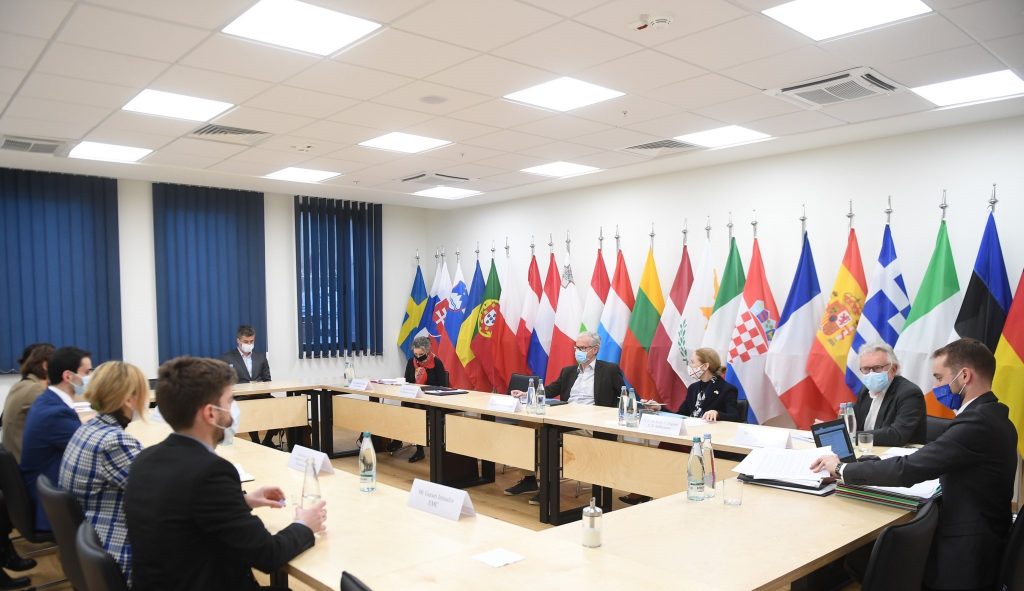Christian Danielsson, European Council President Charles Michel’s Special Envoy to mediate Georgia’s political crisis, held on March 28 preparatory meetings ahead of the renewed mediation process between the ruling Georgian Dream party and the opposition.
The diplomat met, among others, with representatives of Georgian civil society outfits, including Transparency International (TI) Georgia, Georgian Young Lawyers’ Association (GYLA), International Society for Fair Elections and Democracy (ISFED), Georgian Democracy Initiative (GDI), and Human Rights Education and Monitoring Center (EMC), and remotely discussed “steps ahead” with seven key Members of the European Parliament.
In a press briefing held after the meeting with the CSOs, Danielsson said: “European Union is resolutely engaged to help Georgia overcome the present political crisis,” noting, however, that the responsibility for it rests on the political leaders in Georgia rather than on the EU. “And I think they also know what needs to be done in order to find an agreement,” he added.
“Now there is a need for political courage, there is a need for compromise, and let me underline that compromise is not weakness, compromise is strength, compromise is a sign of the democracy in Georgia working and the compromise is the European way,” Danielsson added.
Commenting on the meeting, Eka Gigauri, Head of TI Georgia, said that the CSOs discussed the necessity of a compromise between the parties.
“We discussed the first-line objective to release” Nika Melia, top opposition leader and Giorgi Rurua, the shareholder of the opposition-leaning Mtavari Arkhi TV. The two are regarded as political prisoners by the opposition, a claim the ruling party rejects.
GYLA Head Nika Simonishvili said, “first of all, the steps need to be taken towards the independence of democratic institutions, and only after that can we speak of normal political processes.” Procedurally, Simonishvili stated, “the government shall take the responsibility [first], but the opposition shall enter the parliament [too] to implement reforms. It would be legally impossible to carry out these reforms without the opposition” in the Parliament.
The meeting followed an address to political leaders released yesterday by several key CSOs, presenting their own suggestions about the reforms and ways out of the crisis.
The EU Envoy arrived in Tbilisi on the night of March 27-28, after his first mission earlier in the month ended without success.
Also Read:
- GD, Opposition on Mediation Ahead of EU Diplomat’s Tbilisi Return
- EU Mediation: Danielsson to Return to Georgia
- EU Mediation: No Deal Reached Yet; Danielsson to Leave for Brussels
This post is also available in: ქართული (Georgian) Русский (Russian)

